Glittering Otjikoto shines for B2Gold
Gold mine expects N$5 billion turnover from its 98,6% gold recovery
Augetto
Graig
WINDHOEK
B2Gold is a low-cost international senior gold producer, headquartered in Vancouver, Canada. Founded in 2007, today, B2Gold has three operating gold mines and numerous exploration and development projects in various countries including the Philippines, Namibia, Mali and Colombia. In 2020, B2Gold forecasts consolidated gold production of between 1,000,000 and 1,055,000 ounces.
“I am proud of my company, not only for its extraordinary success in terms of efficient gold production, but for its massive contribution to the livelihoods of the people in each of the countries in which it operates. Our share-price has been climbing steadily and has recently gone through the roof.” Says Mark Dawe, Managing Director & Country Manager – B2Gold Namibia. B2Gold grows through developing its own successful exploration projects and accretive acquisitions of development-stage precious metals properties. It successfully finances, builds and operates its own mines, and this is what makes B2Gold so different and unique.
B2Gold Otjikoto mine
Otjikoto mine is not just any gold mine. With more than 1 000 people working for B2Gold Nambia (employees and contractors) and a turnover of some N$5 billion expected this year, although it’s not the largest mine in the group, the undertaking has become a jewel in its own right.
99% Namibian staff
When Mark Dawe joined B2Gold Otjikoto Mine at the beginning of 2015, the mine had just been commisioned but construction had not yet been completed.
“As I took over, the idea was to get it to nameplate production as soon as possible, but at the same time, to give back as much as possible to communities and to the country. In fact, B2Gold Nambia’s social investment programe started well before the first shovel of earth was moved” he said.
“We slowly managed to get all the right people in place. I am very proud that 99% of our staff is Namibian. We have one Canadian; the Health and Safety manager, who has been instrumental in turning us into the safest mine in the group and one of the safest in the world. The number of lost-time-injury-free hours we have is phenomenal, heading towards seven million hours,” he said.
Officially, B2Gold reported 826 days (well over two years) of injury-free hours for Otjikoto on 13 July 2020.
Essentially, it’s an entirely Namibian operation, using Namibian skills.”
‘Incredible’ atmosphere
Dawe is particularly proud of the results of a recent Employee Satisfaction Survey done at Otjikoto. The survey measured employee satisfaction through a diverse range of metrics. He said the mine achieved 85.1% voluntary participation in the survey and an average score of 75% across all categories, which is very good.
“The atmosphere on the mine is incredible and it is great to see that things are fully operational.
“We’re really proud of the reports we receive from experienced international experts that visit our mine, often stating that Otjikoto mine is one of the neatest mines and friendliest mines they have ever seen.
with the mine’s 98.6% gold recovery: “I don’t know a single mine in the world that has a higher gold recovery than we do”.
“We produce 92% to 94% pure gold bullion; the rest is silver and a little bit of copper. There are only a few gold refineries in the world and our bullion is sent to the Rand Refinery in South Africa, where it is refined to 99.99% gold. The refined gold is bought by banks, investment institutions and some private sales.
COVID-19 Response
Following a meeting on March 25, 2020, between the various industry sector representatives and the Namibian government ministerial committee on the economic impact of COVID-19, the Hon. Minister of Mines and Energy issued a letter to the Namibian Chamber of Mines that stated that key mining operations would be encouraged to continue producing albeit at reduced staffing levels, as determined and motivated specifically for each operation, on a merits and risk-assessed basis.
This was contingent upon the adherence to strict hygiene standards. With this in mind, during the stage 1 lockdown, B2Gold suspended waste stripping operations and as such temporarily laid off its contractor that was tasked to carry out a portion of the wast mining. However, B2Gold Nambia continued to operate most of its own mining fleet as well as the processing plant at full production. The mine has continued to operate with the full support of both the community and Mineworkers’ Union of Nambia. It continued to engage with all stakeholders to ensure that the maximum protection was provided to employees, contractors and their families while operations continued.
Second largest revenue generator
“We are one of the largest revenue generators in the country and as such we are critical to the fiscus” Dawe said.
In these uncertain times, everybody is buying gold, which is seen as a safe heaven, a go-to place in times of crisis.”
Apart from taxes and royalties, B2Gold also contributes substantially towards corporate social investment, Dawe said. “This year, we will spend close to N$100 million in social investment.
Altogether, B2Gold has contributed some N$40 million to the Covid-19 emergency fund, and has also funded its unique Rhino Gold Bar Project, for which 1 000 ounces was donated to make special gold bars, the proceeds from the sales of which would flow to the communities and NGOs supporting rhino conservation in the Kunene region. Sales are expected to reach N$ 30 million, which represents one of the largest donations to conservation in Africa.
“We have already sold the Namibian allocation of those bars and the Canadian and American allocation are selling fast.
Environmental protection
At Otjikoto, they take protection of the environment very seriously, as illustrated by the handling of poisonous cyanide, which is used in the processing of the precious metal.
According to Dawe, the mine operates a cyanide destruction plant, resulting in almost undetectable cyanide reporting to the tailings dam where the ground rock resident from the processing plant is deposited. The cyanite levels in the residue are around 10 parts per million, or about one fifth of 50 parts per million, which is the internationally acceptable standard.
This is because the handling of cyanide was incorporated in the initial plant design, explained Dawe. “We have also lined the tailings dam in order to ensure that there is no percolation of any contaminants into the underground water, even though our waste is below acceptable background levels of cyanide. We ensure there is no poisoning going on from our mine,” he said.
Top technology
At Otjikoto, they also utilize the most modern technology in their fully automated processing plant. B2Gold has installed a fleet management system to improve efficiencies and a fatigue management system that uses advance biometrics to automatically detect fatigue in its mining equipment operators.
Dawe said this is one of the reasons Otjikoto Mine has achieved such an impressive safety record.
Looking ahead
In the foreseeable future, Dawe said he expects the Otjikoto operation will be around for the next 10 years, although the life-of-mine projections are currently being reviewed.
Elsewhere in Namibia, one of B2Gold’s exploration projects, called “Ondundu”, is showing signs of being a significant deposit and, “we are pushing that exploration project”.
Exploration costs and access to exclusive prospecting licenses (EPL) are among the biggest hurdles to the establishment of new mines in Namibia, he added. Limited access to EPLs due to landlocking and resource rent is a concern. Although the Ministry of Mines and Energy is dealing with the matter, value addition for Namibians to metals and minerals should not take place at the exploration stage, as all available funds should go into exploring and discovering viable deposits. As such, EPLs should be granted to companies that have a proven track record of professionally pursuing the understanding of the Geology that may lead to new mines.
“Namibia is rich in poor resources, with many low-grade deposits and mines. At Otjikoto, the grade is 1.4 grams a ton, which is considered to be low grade by world standards, and yet we are highly profitable,” Dawe said. This is because Namibia is a stable country with good infrastructure and excellent access to skilled mining resources.
[email protected]
WINDHOEK
B2Gold is a low-cost international senior gold producer, headquartered in Vancouver, Canada. Founded in 2007, today, B2Gold has three operating gold mines and numerous exploration and development projects in various countries including the Philippines, Namibia, Mali and Colombia. In 2020, B2Gold forecasts consolidated gold production of between 1,000,000 and 1,055,000 ounces.
“I am proud of my company, not only for its extraordinary success in terms of efficient gold production, but for its massive contribution to the livelihoods of the people in each of the countries in which it operates. Our share-price has been climbing steadily and has recently gone through the roof.” Says Mark Dawe, Managing Director & Country Manager – B2Gold Namibia. B2Gold grows through developing its own successful exploration projects and accretive acquisitions of development-stage precious metals properties. It successfully finances, builds and operates its own mines, and this is what makes B2Gold so different and unique.
B2Gold Otjikoto mine
Otjikoto mine is not just any gold mine. With more than 1 000 people working for B2Gold Nambia (employees and contractors) and a turnover of some N$5 billion expected this year, although it’s not the largest mine in the group, the undertaking has become a jewel in its own right.
99% Namibian staff
When Mark Dawe joined B2Gold Otjikoto Mine at the beginning of 2015, the mine had just been commisioned but construction had not yet been completed.
“As I took over, the idea was to get it to nameplate production as soon as possible, but at the same time, to give back as much as possible to communities and to the country. In fact, B2Gold Nambia’s social investment programe started well before the first shovel of earth was moved” he said.
“We slowly managed to get all the right people in place. I am very proud that 99% of our staff is Namibian. We have one Canadian; the Health and Safety manager, who has been instrumental in turning us into the safest mine in the group and one of the safest in the world. The number of lost-time-injury-free hours we have is phenomenal, heading towards seven million hours,” he said.
Officially, B2Gold reported 826 days (well over two years) of injury-free hours for Otjikoto on 13 July 2020.
Essentially, it’s an entirely Namibian operation, using Namibian skills.”
‘Incredible’ atmosphere
Dawe is particularly proud of the results of a recent Employee Satisfaction Survey done at Otjikoto. The survey measured employee satisfaction through a diverse range of metrics. He said the mine achieved 85.1% voluntary participation in the survey and an average score of 75% across all categories, which is very good.
“The atmosphere on the mine is incredible and it is great to see that things are fully operational.
“We’re really proud of the reports we receive from experienced international experts that visit our mine, often stating that Otjikoto mine is one of the neatest mines and friendliest mines they have ever seen.
with the mine’s 98.6% gold recovery: “I don’t know a single mine in the world that has a higher gold recovery than we do”.
“We produce 92% to 94% pure gold bullion; the rest is silver and a little bit of copper. There are only a few gold refineries in the world and our bullion is sent to the Rand Refinery in South Africa, where it is refined to 99.99% gold. The refined gold is bought by banks, investment institutions and some private sales.
COVID-19 Response
Following a meeting on March 25, 2020, between the various industry sector representatives and the Namibian government ministerial committee on the economic impact of COVID-19, the Hon. Minister of Mines and Energy issued a letter to the Namibian Chamber of Mines that stated that key mining operations would be encouraged to continue producing albeit at reduced staffing levels, as determined and motivated specifically for each operation, on a merits and risk-assessed basis.
This was contingent upon the adherence to strict hygiene standards. With this in mind, during the stage 1 lockdown, B2Gold suspended waste stripping operations and as such temporarily laid off its contractor that was tasked to carry out a portion of the wast mining. However, B2Gold Nambia continued to operate most of its own mining fleet as well as the processing plant at full production. The mine has continued to operate with the full support of both the community and Mineworkers’ Union of Nambia. It continued to engage with all stakeholders to ensure that the maximum protection was provided to employees, contractors and their families while operations continued.
Second largest revenue generator
“We are one of the largest revenue generators in the country and as such we are critical to the fiscus” Dawe said.
In these uncertain times, everybody is buying gold, which is seen as a safe heaven, a go-to place in times of crisis.”
Apart from taxes and royalties, B2Gold also contributes substantially towards corporate social investment, Dawe said. “This year, we will spend close to N$100 million in social investment.
Altogether, B2Gold has contributed some N$40 million to the Covid-19 emergency fund, and has also funded its unique Rhino Gold Bar Project, for which 1 000 ounces was donated to make special gold bars, the proceeds from the sales of which would flow to the communities and NGOs supporting rhino conservation in the Kunene region. Sales are expected to reach N$ 30 million, which represents one of the largest donations to conservation in Africa.
“We have already sold the Namibian allocation of those bars and the Canadian and American allocation are selling fast.
Environmental protection
At Otjikoto, they take protection of the environment very seriously, as illustrated by the handling of poisonous cyanide, which is used in the processing of the precious metal.
According to Dawe, the mine operates a cyanide destruction plant, resulting in almost undetectable cyanide reporting to the tailings dam where the ground rock resident from the processing plant is deposited. The cyanite levels in the residue are around 10 parts per million, or about one fifth of 50 parts per million, which is the internationally acceptable standard.
This is because the handling of cyanide was incorporated in the initial plant design, explained Dawe. “We have also lined the tailings dam in order to ensure that there is no percolation of any contaminants into the underground water, even though our waste is below acceptable background levels of cyanide. We ensure there is no poisoning going on from our mine,” he said.
Top technology
At Otjikoto, they also utilize the most modern technology in their fully automated processing plant. B2Gold has installed a fleet management system to improve efficiencies and a fatigue management system that uses advance biometrics to automatically detect fatigue in its mining equipment operators.
Dawe said this is one of the reasons Otjikoto Mine has achieved such an impressive safety record.
Looking ahead
In the foreseeable future, Dawe said he expects the Otjikoto operation will be around for the next 10 years, although the life-of-mine projections are currently being reviewed.
Elsewhere in Namibia, one of B2Gold’s exploration projects, called “Ondundu”, is showing signs of being a significant deposit and, “we are pushing that exploration project”.
Exploration costs and access to exclusive prospecting licenses (EPL) are among the biggest hurdles to the establishment of new mines in Namibia, he added. Limited access to EPLs due to landlocking and resource rent is a concern. Although the Ministry of Mines and Energy is dealing with the matter, value addition for Namibians to metals and minerals should not take place at the exploration stage, as all available funds should go into exploring and discovering viable deposits. As such, EPLs should be granted to companies that have a proven track record of professionally pursuing the understanding of the Geology that may lead to new mines.
“Namibia is rich in poor resources, with many low-grade deposits and mines. At Otjikoto, the grade is 1.4 grams a ton, which is considered to be low grade by world standards, and yet we are highly profitable,” Dawe said. This is because Namibia is a stable country with good infrastructure and excellent access to skilled mining resources.
[email protected]



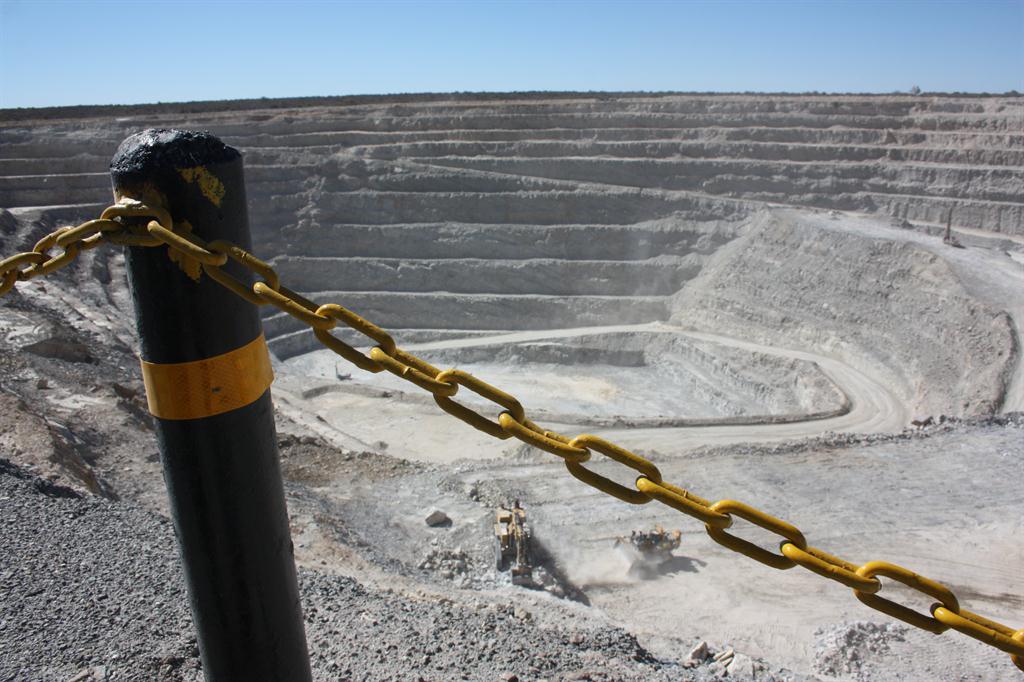
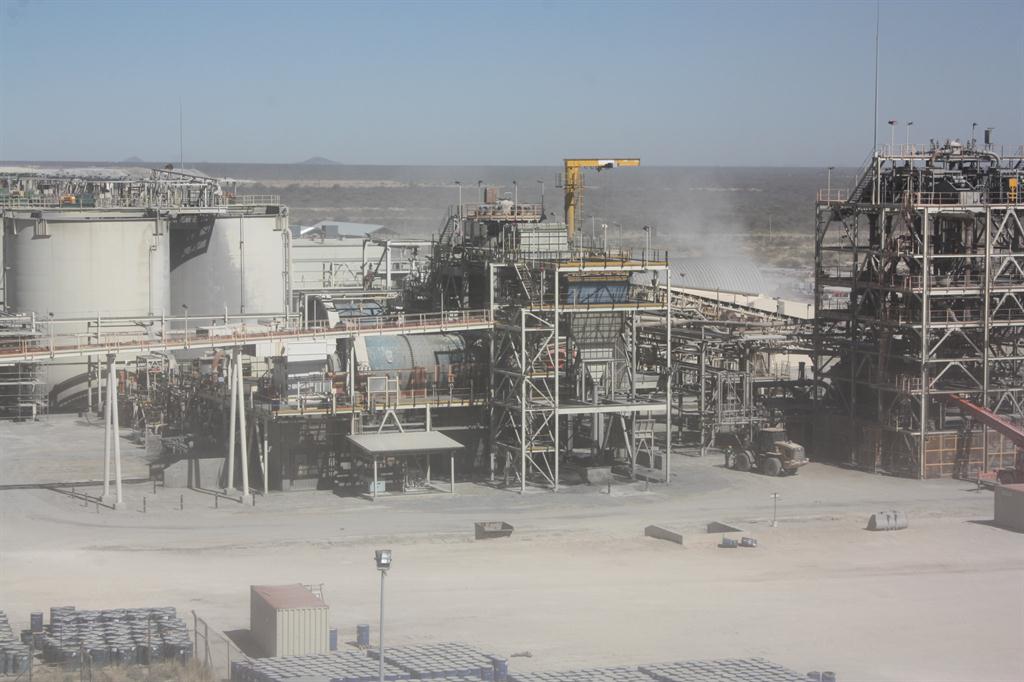
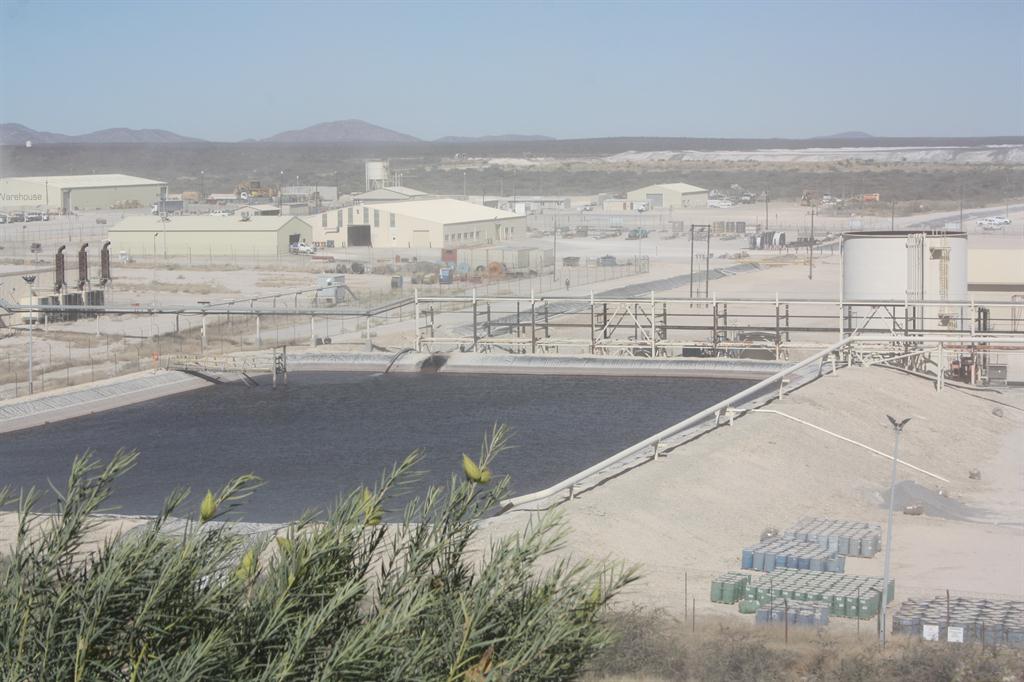
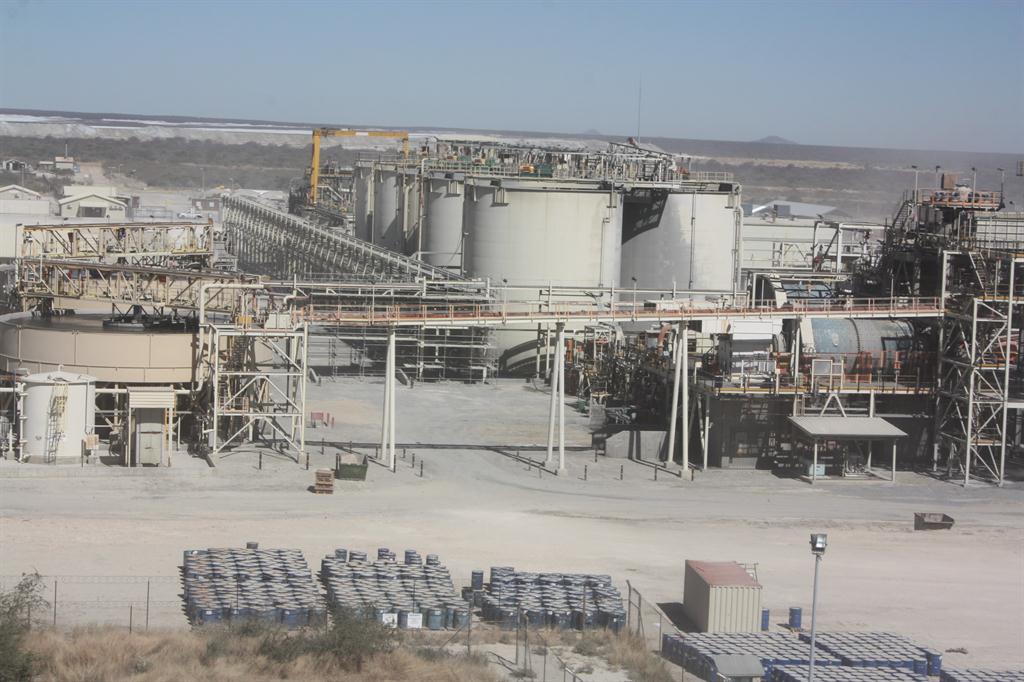
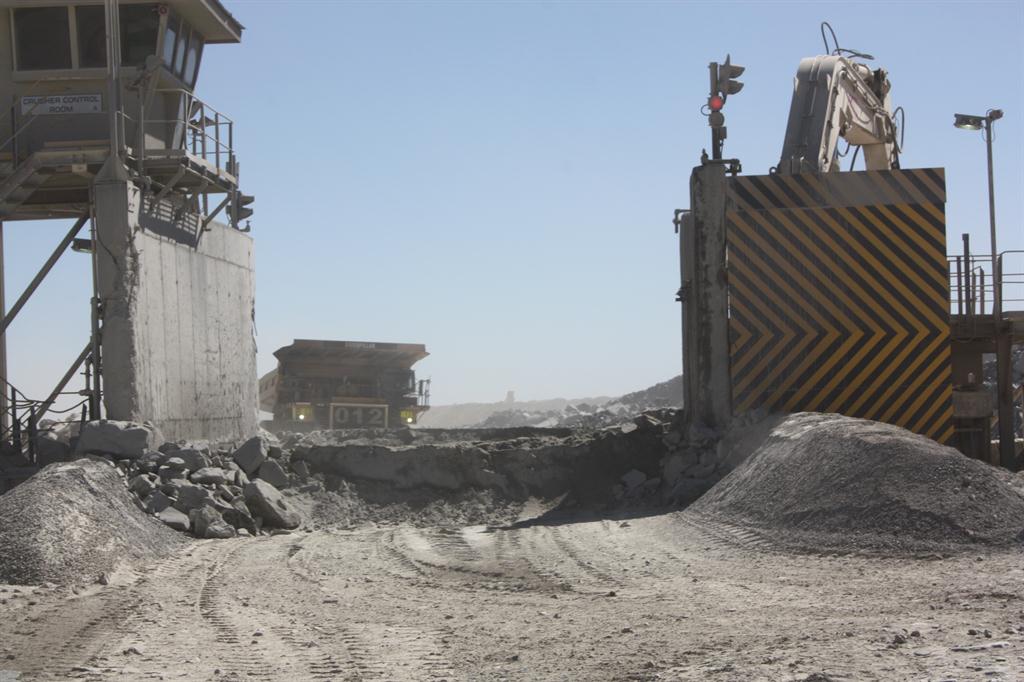


Kommentar
Allgemeine Zeitung
Zu diesem Artikel wurden keine Kommentare hinterlassen